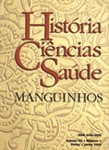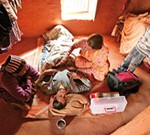March 8th, International Women’s Day
On International Women’s Day, we highlight interviews we did with women researchers for our blog. The topics covered are as varied as their research areas. Some interviews are dedicated to issues related to women, such as feminism in the history of science and medicine and reproductive rights. Other interviews explore such issues as race, eugenics, science communication, mental health, the political dimension of health, and other themes explored in our journal.
Enjoy the reading!

Activism in the history of medicine Dr. Susan M. Reverby is Professor Emerita in Women’s and Gender Studies at Wellesley College. Throughout her career, she sought to combine her interests in women’s studies, health activism, race, and public health ethics. In this interview, among other topics, she talked about the dialogue between women’s studies and the history of medicine in the US: “My position at Wellesley College, where I taught for 34 years, was in Women’s Studies, not history. So it forced me to think about gender in multiple ways. Regarding my work, I was originally trained as an undergraduate in labor history. I worked for a left health think tank in the early 1970s, was a women’s health activist, and then went to graduate school. My dissertation, then book, focused on nurses since it combined all my interests: health, women, workers, and activism.” she said.
A feminist perspective on the history of medicine The history of women in medicine began to be written at the end of the 19th century, influenced by the suffragette struggles and by the interest in sexuality that emerged from the 1970s onwards in the academic world, in connection with the movements for the rights of women to contraception and abortion. This interview with researcher Teresa Ortiz-Gómez explores the contributions of feminism to the history of medicine. According to the researcher, feminism has betrayed history and interest by studying the medical ideas of all times about ‘the woman’ and the female body; the professional, domestic, scientific, and political activities of women related to health; and the experiences of health and illness of women themselves. Teresa Ortiz-Gómez is a professor of history of science at the University of Granada. She has been working with a feminist perspective on the history of medicine for over 30 years.
Gender and work in Argentina of the 20th century A brief interview with historian Graciela Queirolo, author of the book “Mujeres en las oficinas: trabajo, género y clase en el sector administrativo (Buenos Aires, 1910-1950)”. The book analyzes the professional experience of typists and secretaries whose emergency changed the city, the work environment, and the family organization.
Race in science: a paradoxal idea Evelynn Hammonds, Chair of the Department of History of Science at Harvard University, presents some of the most important works and approaches that marked the historiography of race, specially in the United States.
La popularización de la ciencia en Latinoamérica: heterogeneidad, creatividad, solidaridad e inclusión En los próximos días, Fiocruz recibirá investigadores de varios países de América Latina para la 18ª edición del Congreso de la Red de Popularización de la Ciencia y la Tecnología de América Latina y el Caribe. Entrevistamos a Ma de Lourdes Patiño Barba, directora ejecutiva de RedPop sobre, entre otros temas, las características del campo en América Latina y cómo la divulgación científica puede contribuir a la lucha contra la desinformación.
Covid-19 as an issue of memory, truth, and justice This interview with Deisy Ventura, professor at the Faculty of Public Health of the Universidade de São Paulo, discusses the political dimension of the COVID-19 pandemic in Brazil. According to Ventura, the Brazilian government had a systematic policy for spreading the virus.
A medicalização do que não é doença Em entrevista ao Blog de HCS-Manguinhos, Sandra Caponi discute a clorpromazina, droga que prometia revolucionar o campo da saúde mental na década de 1950.
Coronavírus y la gripe de 1918-19: paralelos históricos Para María Isabel Porras Gallo no bastan recursos médicos y tecnológicos eficaces. “Es imprescindible la existencia de mínimas condiciones higiénico-sanitarias, económicas y sociales”.
La ciencia en tiempos de neoliberalism Una breve entrevista con Karina Ramacciotti, Investigadora Independiente Conicet, sobre el momento actual de la ciencia en Argentina.
El nuevo gobierno mexicano y la salud Ana María Carrillo, profesora titular en la UNAM, México, analiza los desafíos del país en el área de salud pública y las tendencias del presidente mexicano con respeto a este tema.
Infancia y salud mental en Argentina En entrevista a HCS-Manguinhos, Eugenia Bianchi, discute los tratamientos farmacológicos del trastorno de déficit de atención e hiperactividad en niños.
Science, culture and society: an interview with Jahnavi Phalkey Phalkey, a prominent historian of science from India, has brought a fresh perspective to a series of topics such as the relationship between Science and Empire and the challenges of transnational histories of sciences.
Science and gender, feminism and history of science: an interview with Evelyn Fox Keller This interview covers the trajectory of Evelyn Fox Keller, emeritus professor of history and philosophy of science at the Massachusetts Institute of Technology. Keller reflects on her career and the challenges she had to overcome to push back the frontiers of science with her pioneering work on language, gender, and science, which has been very influential in changing views in the history of science.
A dark reality Cassia Roth, from the History Department at the University of California, Los Angeles, explains the connection between state policies towards reproduction in early-twentieth-century Brazil and the current situation in women’s reproductive health.
Related articles published in HCS-Manguinhos:
Gender, women, and science This special dossier of HCS-Manguinhos published in 2008 is entirely dedicated to gender, women, and science. It originated in the International Seminar Making Gender 7 – Gender and Preconceptions, which took place at the Universidade Federal de Santa Catarina in August 2006. The symposium focused on the dissemination and debate of historical studies regarding gender relations in the natural and exact sciences, topics that are present in this dossier. See the full edition on gender and science.
Historia y feminismo en América Latina. El libro de la historiadora argentina Dora Barrancos condensa los grandes acontecimientos de los feminismos del siglo XX en la región, sus protagonistas y demandas.
A historiographic essay on the history of women, medicine, and gender Some of the most important works and approaches.
Tensiones de género en la protección de la infancia María Soledad Rojas Novoa analiza las condiciones de emergencia del movimiento americano de protección de la infancia a principios del siglo XX.
Women made visible: the Institute of Tropical Medicine in Portugal This work in progress looks at the Institute’s scientific journal to identify the participation of women in tropical medicine between 1943 and 1966.
Gender, women and science February, 11 International Day of Women and Girls in Science. This special dossier of HCS-Manguinhos published in 2008 is entirely dedicated to gender, women and science.
A historiographic essay on the history of women, medicine, and gender Some of the most important works and approaches.
Peruvian women alleging forced sterilization seek justice Thousands of Peruvian women have been seeking justice, alleging they were sterilized without consent in the 1990s under an aggressive population control campaign carried out by the government of former President Alberto Fujimori.
The idealized representation of women in Brazilian magazines, 1940-1960 It analyses the female figures of the advertisements published in O Cruzeiro and Manchete magazines between the 1940s and 1960s.
Género, sanidad y colonialidad: la ‘mujer marroquí’ y la ‘mujer española’ en la política sanitaria de España en Marruecos, Isabel Jiménez-Lucena. Hist. cienc. saude-Manguinhos, Jun 2006, vol.13, no.2.
The biomedicalisation of illegal abortion: the double life of misoprostol in Brazil, Silvia de Zordo. Hist. cienc. saude-Manguinhos, Mar 2016, vol.23, no.1.
La protección a la maternidad de las trabajadoras en Argentina: aspectos legales y administrativos en la primera mitad del siglo XX, Carolina Biernat y Karina Ramacciotti, Hist. cienc. saude-Manguinhos, Dic 2011, vol.18, suppl.1
La tutela estatal de la madre y el niño en la Argentina: estructuras administrativas, legislación y cuadros técnicos (1936-1955). Carolina Biernat y Karina Ramacciotti. Hist. cienc. saude-Manguinhos, Jun 2008, vol.15, no.2.
Parirás sin dolor: poder médico, género y política en las nuevas formas de atención del parto en la Argentina (1960-1980), Karina Felitti. Hist. cienc. saude-Manguinhos, Dic 2011, vol.18, suppl.1.
Intersecciones en las configuraciones de la maternidad en la historia argentina, 1900-1946: registros médicos y culturales bajo la lupa, Karina Felitti. Hist. cienc. saude-Manguinhos, Mar 2016, vol.23, no.1.
Cancer, women, and public health: the history of screening for cervical cancer, Ilana Löwy. Hist. cienc. saude-Manguinhos, July 2010, vol.17, suppl.1.
Morbimortalidad femenina en la Puna jujeña: potencialidad de la técnica autopsia verbal, Raquel Irene Drovetta. Hist. cienc. saude-Manguinhos, 2008, vol.15.
Género, sanidad y colonialidad: la ‘mujer marroquí’ y la ‘mujer española’ en la política sanitaria de España en Marruecos, Isabel Jiménez-Lucena . Hist. cienc. saude-Manguinhos, Jun 2006, vol.13, no.2.
Enfermería de salud pública, modernización y cooperación internacional: El proyecto de la Escuela Nacional de Enfermeras de Venezuela, 1936-1950, Hebe M. C. Vessuri. Hist. cienc. saude-Manguinhos, Dic 2001, vol.8, no.3.
Eugenics, sterilization, and historical memory in the United States, Alexandra Minna Stern. Hist. cienc. saude-Manguinhos, Dec 2016, vol.23, suppl.1.
Madres y niños en las políticas del Servicio Nacional de Salud de Chile (1952-1964), María Soledad Zárate Campos y Lorena Godoy Catalán. Hist. cienc. saude-Manguinhos, Dic 2011, vol.18, suppl.1.










